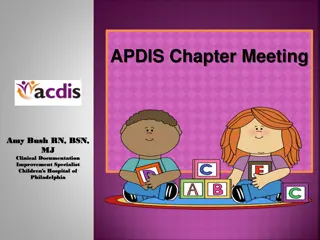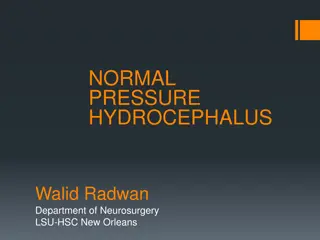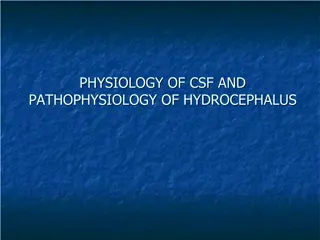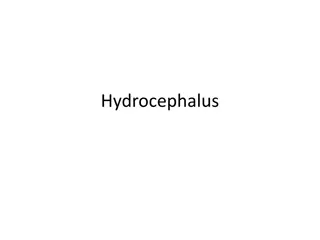Clinical Documentation Case Study: Posterior Fossa Syndrome and Mutism in Pediatric Patient
A case study of Kaye, a 3-year-old with a posterior fossa mass and obstructive hydrocephalus, highlights the importance of accurate clinical documentation. CDI queries to the physician clarified the distinction between posterior fossa mutism and syndrome, impacting coding accuracy and patient care o
4 views • 11 slides
Understanding Normal Pressure Hydrocephalus: Clinical Features and Diagnosis
Normal Pressure Hydrocephalus (NPH) is a condition characterized by the classic triad of dementia, urinary incontinence, and gait disturbance. Learn about the history, types, diagnostic studies, and presentation of NPH, along with differentiating it from other diseases. Discover the current standard
0 views • 30 slides
Overview of CSF Physiology and Hydrocephalus Pathophysiology
The cerebrospinal fluid (CSF) plays a crucial role as a dynamic component of the central nervous system, serving as a mechanical cushion, a source of nutrition, and aiding in waste product excretion. Understanding the production and absorption of CSF, as well as factors affecting these processes, is
0 views • 46 slides
Understanding Hydrocephalus: Causes, Characteristics, and Impacts
Hydrocephalus is a condition resulting from an imbalance in cerebrospinal fluid production and absorption, leading to swelling and pressure on the brain. It can occur due to various reasons like congenital factors, prematurity, spina bifida, meningitis, or brain tumors. The condition manifests diffe
0 views • 35 slides



